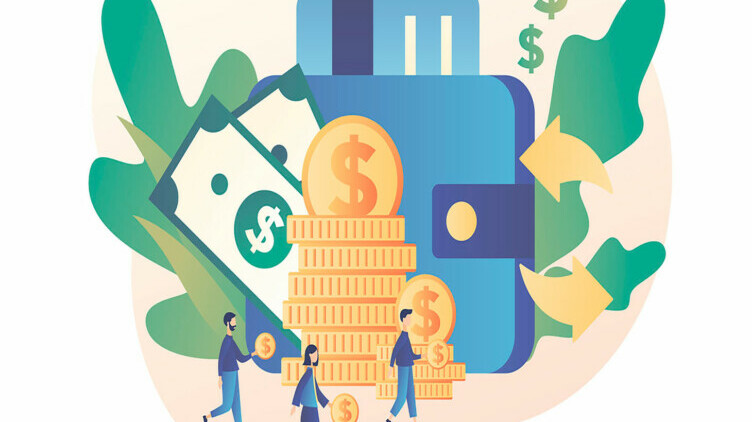NACHA Changes ACH Credit-Push Payments Rules To Fight Scams & Fraud
Placing More Responsibility on the Financial Services Sector to Police Scams & Fraud
Authors:
• SCARS Editorial Team – Society of Citizens Against Relationship Scams Inc.
• NACHA
About This Article
Nacha members have endorsed rules to combat fraud, including business email compromise (BEC), leveraging credit-push payments. These rules mandate ACH payment monitoring for all network participants (excluding consumers), marking a pivotal shift.
Despite not altering liability, recipient financial institutions (RDFIs) gain a monitoring role for the first time. With BEC scams, vendor impersonation, and payroll fraud causing significant losses, the need for action is urgent.
The rules enhance fraud detection across the payment process, empowering financial institutions to act swiftly upon detection. Prompted by Nacha’s “Risk Management Framework for Credit-Push Fraud,” these rules promise broader applicability beyond ACH payments.

NACHA Changes the Rules for Banking that make use of Credit-Push ACH Payments
New Rules
The approval of new rules by Nacha members marks a significant milestone in the ongoing battle against fraud, particularly for both consumer and business victims in the U.S. With the prevalence of scams like business email compromise (BEC) on the rise, these rules are designed to bolster the defenses of the ACH Payments Network against fraudulent activities that involve credit-push payments. By establishing a baseline of ACH payments monitoring for all parties involved in the network, except consumers, these rules represent a proactive approach to mitigating fraud risks.
The impact of fraud, especially BEC scams, cannot be understated. With billions of dollars lost annually due to such schemes, financial institutions and businesses alike must take decisive action to combat this threat. The newly approved rules empower receiving financial institutions (RDFIs) with a defined role in monitoring the ACH payments they receive, enabling them to detect and respond to fraudulent transactions more effectively. This collaborative effort, driven by Nacha’s commitment to self-governance, reflects a collective determination to safeguard the integrity of the payment system and protect both businesses and consumers from financial harm.
According to NACHA
Nacha members have approved a set of rules intended to reduce the incidence of frauds, such as business email compromise (BEC), that make use of credit-push payments. The new rules establish a base-level of ACH payments monitoring on all parties in the ACH Network (except consumers). While the new rules do not shift the liability for ACH payments, for the first time receiving financial institutions (RDFIs) will have a defined role in monitoring the ACH payments they receive.
“All participants in the ACH Payments Network have a part to play in reducing the incidence of fraud, and recovering when fraud has occurred,” said Jane Larimer, Nacha President and CEO. “I applaud Nacha’s members for taking this important step of self-governance.”
BEC (Business Email Compromise,) vendor impersonation and payroll impersonation are some examples of fraud that result in payments being “pushed” from a payer’s account to the account of a fraudster. The FBI’s Internet Crime Complaint Center’s 2023 annual report found there were 21,489 BEC complaints in 2023 totaling $2.9 billion in reported losses, making it the second-costliest type of cybercrime. According to the Association of Financial Professionals, “Business Email Compromise (BEC) scams are still highly prevalent and are the root cause of payment fraud at a majority of organizations.”
The new rules follow the flow of a credit-push payment to promote the detection of fraud from the point of origination through the point of receipt at an account at the RDFI. When fraud is detected, the rules empower the originating financial institution (ODFI) to request the return of the payment for any reason; the RDFI to delay funds availability (within the limits of Regulation CC) to examine the payment more closely; and the RDFI to return a suspicious transaction on its own initiative without waiting for a request or a customer claim. An additional rule facilitates transaction monitoring by RDFIs by applying a standard transaction description for ACH credits used for payroll payments.
The impetus for the newly approved Rules came in late 2022 when Nacha released its strategy “Risk Management Framework for the Era of Credit-Push Fraud.” The strategy expanded the focus of fraud detection and prevention to include frauds that use credit-push payments, including ACH credits. While the new rules apply to ACH payments, their principles and techniques are more broadly applicable to all types of credit-push payments.
About Nacha
Nacha governs the thriving ACH Payments Network in the United State, the payment system that drives safe, smart, and fast Direct Deposits and Direct Payments with the capability to reach all U.S. bank and credit union accounts. There were 31.5 billion ACH Network payments made in 2023, valued at $80.1 trillion. Through problem-solving and consensus-building among diverse payment industry stakeholders, Nacha advances innovation and interoperability in the payments system. Nacha develops rules and standards, provides industry solutions, and delivers education, accreditation, and advisory services.
-/ 30 /-
What do you think about this?
Please share your thoughts in a comment below!
More Related Information:
- U.S. FedNOW Is Launched (scamsnow.com)
- New York State Goes After Citibank For Failing To Protect & Refund To Scam Victims – January 2024 (scamsnow.com)
- 3 Smart Bank Strategies to Stop Scams (scamsnow.com)
- A Proposal from SCARS to Reduce Bank Wire/Money Transfer Fraud (scamsnow.com)
- Family Takes Legal Action Against Banks After Navy Veteran Loses $3.6 Million in Wire Fraud Scheme (scamsnow.com)
- Bank Customer Interventions (scamsnow.com)
-/ 30 /-
What do you think about this?
Please share your thoughts in a comment below!
SCARS LINKS: AgainstScams.org RomanceScamsNOW.com ContraEstafas.org ScammerPhotos.com Anyscam.com ScamsNOW.com
reporting.AgainstScams.org support.AgainstScams.org membership.AgainstScams.org donate.AgainstScams.org shop.AgainstScams.org
youtube.AgainstScams.org linkedin.AgainstScams.org facebook.AgainstScams.org
Important Information for New Scam Victims
- Please visit www.ScamVictimsSupport.org – a SCARS Website for New Scam Victims & Sextortion Victims.
- SCARS Institute now offers its free, safe, and private Scam Survivor’s Support Community at www.SCARScommunity.org – this is not on a social media platform, it is our own safe & secure platform created by the SCARS Institute especially for scam victims & survivors.
- SCARS Institute now offers a free recovery learning program at www.SCARSeducation.org.
- Please visit www.ScamPsychology.org – to more fully understand the psychological concepts involved in scams and scam victim recovery.
If you are looking for local trauma counselors, please visit counseling.AgainstScams.org
If you need to speak with someone now, you can dial 988 or find phone numbers for crisis hotlines all around the world here: www.opencounseling.com/suicide-hotlines
Statement About Victim Blaming
Some of our articles discuss various aspects of victims. This is both about better understanding victims (the science of victimology) and their behaviors and psychology. This helps us to educate victims/survivors about why these crimes happened and not to blame themselves, better develop recovery programs, and help victims avoid scams in the future. At times, this may sound like blaming the victim, but it does not blame scam victims; we are simply explaining the hows and whys of the experience victims have.
These articles, about the Psychology of Scams or Victim Psychology – meaning that all humans have psychological or cognitive characteristics in common that can either be exploited or work against us – help us all to understand the unique challenges victims face before, during, and after scams, fraud, or cybercrimes. These sometimes talk about some of the vulnerabilities the scammers exploit. Victims rarely have control of them or are even aware of them, until something like a scam happens, and then they can learn how their mind works and how to overcome these mechanisms.
Articles like these help victims and others understand these processes and how to help prevent them from being exploited again or to help them recover more easily by understanding their post-scam behaviors. Learn more about the Psychology of Scams at www.ScamPsychology.org
SCARS INSTITUTE RESOURCES:
If You Have Been Victimized By A Scam Or Cybercrime
♦ If you are a victim of scams, go to www.ScamVictimsSupport.org for real knowledge and help
♦ SCARS Institute now offers its free, safe, and private Scam Survivor’s Support Community at www.SCARScommunity.org/register – this is not on a social media platform, it is our own safe & secure platform created by the SCARS Institute especially for scam victims & survivors.
♦ Enroll in SCARS Scam Survivor’s School now at www.SCARSeducation.org
♦ To report criminals, visit https://reporting.AgainstScams.org – we will NEVER give your data to money recovery companies like some do!
♦ Follow us and find our podcasts, webinars, and helpful videos on YouTube: https://www.youtube.com/@RomancescamsNowcom
♦ Learn about the Psychology of Scams at www.ScamPsychology.org
♦ Dig deeper into the reality of scams, fraud, and cybercrime at www.ScamsNOW.com and www.RomanceScamsNOW.com
♦ Scam Survivor’s Stories: www.ScamSurvivorStories.org
♦ For Scam Victim Advocates visit www.ScamVictimsAdvocates.org
♦ See more scammer photos on www.ScammerPhotos.com
You can also find the SCARS Institute’s knowledge and information on Facebook, Instagram, X, LinkedIn, and TruthSocial
Psychology Disclaimer:
All articles about psychology and the human brain on this website are for information & education only
The information provided in this and other SCARS articles are intended for educational and self-help purposes only and should not be construed as a substitute for professional therapy or counseling.
Note about Mindfulness: Mindfulness practices have the potential to create psychological distress for some individuals. Please consult a mental health professional or experienced meditation instructor for guidance should you encounter difficulties.
While any self-help techniques outlined herein may be beneficial for scam victims seeking to recover from their experience and move towards recovery, it is important to consult with a qualified mental health professional before initiating any course of action. Each individual’s experience and needs are unique, and what works for one person may not be suitable for another.
Additionally, any approach may not be appropriate for individuals with certain pre-existing mental health conditions or trauma histories. It is advisable to seek guidance from a licensed therapist or counselor who can provide personalized support, guidance, and treatment tailored to your specific needs.
If you are experiencing significant distress or emotional difficulties related to a scam or other traumatic event, please consult your doctor or mental health provider for appropriate care and support.
Also read our SCARS Institute Statement about Professional Care for Scam Victims – click here
If you are in crisis, feeling desperate, or in despair, please call 988 or your local crisis hotline – international numbers here.
More ScamsNOW.com Articles
A Question of Trust
At the SCARS Institute, we invite you to do your own research on the topics we speak about and publish. Our team investigates the subject being discussed, especially when it comes to understanding the scam victims-survivors’ experience. You can do Google searches, but in many cases, you will have to wade through scientific papers and studies. However, remember that biases and perspectives matter and influence the outcome. Regardless, we encourage you to explore these topics as thoroughly as you can for your own awareness.















![NavyLogo@4x-81[1] NACHA Changes Credit-Push ACH Payments Rules To Fight Scams & Fraud - 2024](https://scamsnow.com/wp-content/uploads/2025/04/NavyLogo@4x-811.png)










![scars-institute[1] NACHA Changes Credit-Push ACH Payments Rules To Fight Scams & Fraud - 2024](https://scamsnow.com/wp-content/uploads/2025/04/scars-institute1.png)

![niprc1.png1_-150×1501-1[1] NACHA Changes Credit-Push ACH Payments Rules To Fight Scams & Fraud - 2024](https://scamsnow.com/wp-content/uploads/2025/04/niprc1.png1_-150x1501-11.webp)